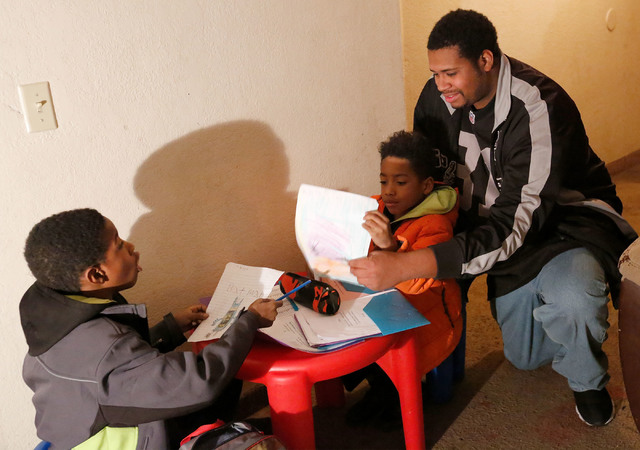School for low-income students eager for ESAs
A different kind of private school is looking to come to Las Vegas. If your family makes too much money, your children won’t be accepted.
That’s just one of the things that make schools in the Cristo Rey Network unique.
John Foley, a Catholic priest in Chicago, founded the first Cristo Rey School in 1996. To cover the costs of a college-preparatory education in his low-income and predominantly Hispanic community, he put students to work — literally. Local businesses agreed to hire students for entry-level work and pay a stipend to an employment agency attached to the school.
Four students rotate to fill one entry-level position. Ninth-graders get ready by going to a summer “boot camp” where they learn hygiene, professional dress and use of common computer programs. The school also works to improve the academic skills of students, who are an average of two years behind.
Corporate partners view students as employees, not as charity cases. Employers rate 94 percent of students as meeting or exceeding expectations on performance reviews.
In the past 20 years, a single school in Chicago has grown to 32 schools across the country. The schools accept only students from low-income families — the average family earns $35,000 a year — and 97 percent of its students are minorities. More than 2,300 companies have hired a Cristo Rey student.
DeMarco Randall is a senior at Arrupe Jesuit High School, a Cristo Rey School in Denver, and he shows the potential of Cristo Rey St. Viator Las Vegas College Preparatory. He already has worked for a law firm, corporate office and TV station. Because he grew up in a low-income home, the odds were against him attending college. After his hard work and studies at Cristo Rey, each of the eight colleges he applied to accepted him.
His job wasn’t enough to go to school. Randall needed a private scholarship to afford the remaining tuition. That’s why those working to open Cristo Rey Las Vegas are hoping Nevada lawmakers fund Education Savings Accounts.
ESAs would allow current public school students to receive $5,200 to $5,700 toward private school tuition, online schooling or tutoring. Passed in 2015, ESAs were found constitutional by the state Supreme Court, but the court overruled their funding on a technicality. Gov. Brian Sandoval, who’s also the honorary chair of the Cristo Rey Las Vegas committee, proposed in his 2017-19 state budget that the state partially fund ESAs with $60 million.
So far, Democrats have publicly opposed ESAs, which would increase per-pupil funding for those remaining in public schools. They should listen to those trying to build a school for low-income students.
“The network has been such a success around the nation that it’s imperative it gets built here in Las Vegas,” said Jim Kohl, a Cristo Rey Las Vegas feasibility committee member. “An ESA would clearly help that.”
Cristo Rey St. Viator Las Vegas College Preparatory is also looking for businesses to commit to hiring its students. To learn more or get involved, go to www.cristoreylasvegas.org/ or contact Shawna Barnes-Lowe, feasibility study coordinator, at 702-845-2862 or crsvlvinfo@gmail.com.
Victor Joecks’ column appears in the Nevada section each Monday, Wednesday and Friday. Contact him at vjoecks@reviewjournal.com. Follow @victorjoecks on Twitter.
























